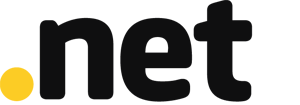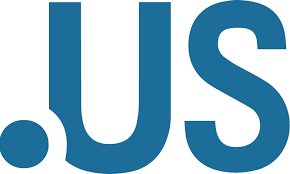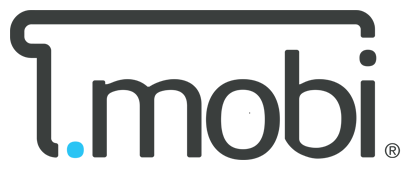








Defend Your Website
Website Security protects your web investment, keeping you and your customers safe from hackers and other online threats.

Website Security Express
Fix my hacked site now.
Expedited malware removal + ongoing protection.
- Protect one site
- 30-minute response time
- Unlimited malware removal
- Blacklist monitoring & removal
- WAF malware prevention
- CDN performance booster
*Google will blacklist sites that could be considered dangerous to visitors, which makes it nearly impossible for people to find you. We identify and resolve any blacklisting issues, so there’s no interruption to your business.
**As opposed to simply scanning for malware that may have already infected your site, our Web Application Firewall (WAF) provides around-the-clock, proactive protection to block malware from ever reaching your website.
***Our Content Delivery Network (CDN) stores your content on multiple servers around the world, which means visitors connect to servers that are physically closer to them. This speeds up your website’s performance by at least 50%.

Website Security Essential
Detect and remove malware.
Malware scan and removal.
- Protect one site
- 12-hour response time
- Unlimited malware removal
- Blacklist monitoring & removal
*Google will blacklist sites that could be considered dangerous to visitors, which makes it nearly impossible for people to find you. We identify and resolve any blacklisting issues, so there’s no interruption to your business.

Website Security Deluxe
Proactively secure your site.
Malware scan and removal + ongoing protection.
- Protect one site
- 12-hour response time
- Unlimited malware removal
- Blacklist monitoring & removal
- WAF malware prevention
- CDN performance accelerator
*Google will blacklist sites that could be considered dangerous to visitors, which makes it nearly impossible for people to find you. We identify and resolve any blacklisting issues, so there’s no interruption to your business.
**As opposed to simply scanning for malware that may have already infected your site, our Web Application Firewall (WAF) provides around-the-clock, proactive protection to block malware from ever reaching your website.
***Our Content Delivery Network (CDN) stores your content on multiple servers around the world, which means visitors connect to servers that are physically closer to them. This speeds up your website’s performance by at least 50%.

Protection for unlimited pages within one site

Trusted Site Seal

Brand reputation monitoring

Google, Norton and McAfee blacklist monitoring

Security analysts for advanced issues

Advanced security monitoring

24/7 customer care

Unlimited malware scans and removal

30-day money back guarantee*
WAF Protection
A WAF is a cloud-based firewall service that screens and protects your real-time website traffic from threats such as SQL injection attacks and comment spammers, while also thwarting DDoS attacks. WAF only takes a few minutes to set up, and is the front-line defense for your website in between Website Security scans.
Malware Scanning
Website Security scans your site daily for malware so you don’t have to. If malware is found on your site, all you’ll need to do is submit a removal request, and our expert team will get to work on fixing the problem. Not only does Website Security monitoring protect you and your customers, but it protects your website’s rankings by checking a variety of different blacklists, and notifying you if you have been placed on one.
CDN Booster
A CDN is a network of servers around the world that deploy dynamic and static caching so that all content will render fast and reliably. This means when someone in Japan visits your website hosted in the United States, it will load just as fast as a website hosted in Japan.
Top 10 Online Threats
The strategies hackers use to break into your site can be complicated but the results are usually pretty simple – lost revenue.
Here are the 10 most common threats identified by the Open Web Application Security Project:
1. Injection.
It's not uncommon for web applications to have injection flaws, especially SQL injection flaws. A hacker who finds one will send malicious data as part of a command or query. The attacker's message tricks the app into changing data or executing a command it was not designed to obey
2. Cross-site Scripting.
Cross-site Scripting flaws occur whenever an application sends user-supplied data to a web browser without validating it first. Hackers use these flaws to hijack users away from the site or deface it, thereby costing the site owner in lost business.3. Insecure Direct Object References
Applications that lack checks to verify a user is authorized to view particular content can be manipulated to access private data.4. Broken Authentication
When account credentials and session tokens aren't properly protected, hackers can assume users' identities online.5. Cross-site Request Forgery (CSRF)
A CSRF attack tricks unknowing site visitors into submitting forged HTTP requests via image tags, XSS, or other techniques. If the user is logged in, the attack succeeds.6. Security Misconfiguration
.Security misconfiguration flaws give hackers unauthorized access to system data via default accounts, unused pages, unpatched flaws, unprotected files and directories.7. Insecure Cryptographic Storage
Many web applications don't do enough to protect sensitive data such as credit card numbers, Social Security numbers and login credentials . Thieves may use this data for identity theft, credit card fraud or other crimes.8. Failure to Restrict URL Access
Often an app will protect sensitive interactions by not showing links or URLs to unauthorized users. Attackers use this weakness to access those URLs directly in order to carry out unauthorized actions.9. Insufficient Transport Layer Protection
Applications often fail to authenticate, encrypt and protect the confidentiality of network traffic. Some use weak algorithms, expired or invalid certificates or use them incorrectly. This allows hackers to "eavesdrop" on online exchanges. An SSL Certificate typically neutralizes this threat.10. Invalidated Redirects & Forwards
Web applications often redirect or forward legitimate users to other pages and websites, using insecure data to determine the destination. Attackers use this weakness to redirect victims to phishing or malware sites, or use forwards to open private pages.Sign Up for Domain Specials and other Deals!

24/7 SALES & SUPPORT:
(480) 624-2500

BILLING SUPPORT:
(480) 624 2515
